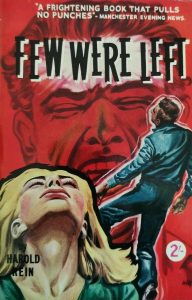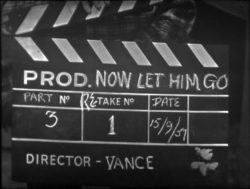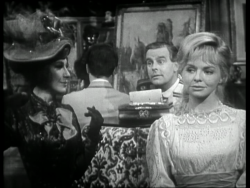by OLIVER WAKE
Armchair Theatre Writer: James Forsyth; Adapted from (novel): Harold Rein; Producer Sydney Newman; Director: William Kotcheff
This piece was substantially revised and updated in 2018.
When people talk about live television drama, and in particular the disasters that can befall live productions, actors forgetting their lines and technical faults loom large. Sometimes mention will be made of the incident in which a leading actor died during a performance. It sounds like it could be a dark joke or an industry myth, but it’s true. It’s a morbid story but a fascinating one.

The production in question was Underground, transmitted on Sunday 30 November 1958 as part of ITV company ABC’s popular Armchair Theatre drama anthology. It was directed by William (known as Ted) Kotcheff, one of ABC’s regular directors, then aged only 27, and produced by Sydney Newman, the company’s drama supervisor. The play was a television dramatisation by James Forsyth of Harold Rein’s 1955 novel Few Were Left. No recording of the play exists, so this account is based on various interviews and media reports about the play. There are several accounts of what happened which, though largely consistent on the main events, differ notably on the smaller details. In this essay I’ll try to separate the reality from the myth and distortion as far as is possible at this remove from the event itself.



